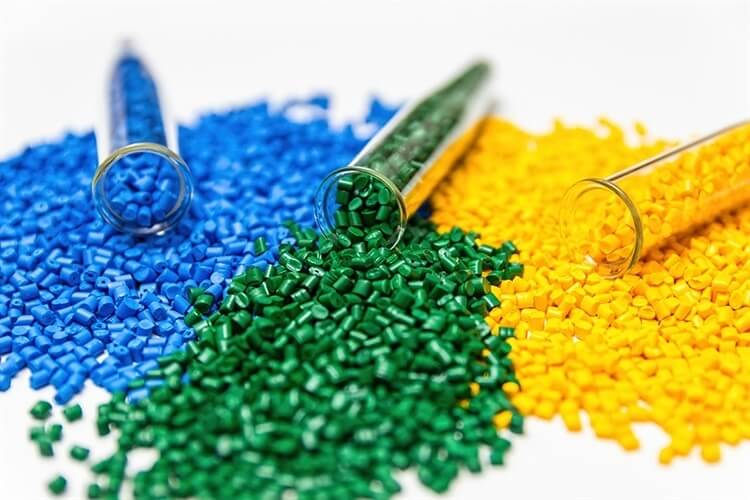Exploring the Varied Applications and Advantages of Polymers in Different Industries
Polymers, with their diverse range of residential properties and capabilities, have become vital in numerous markets, each gaining distinct benefits from their application. From enhancing safety and security and performance in the vehicle market to revolutionizing medical tools in the medical care industry, polymers play a critical duty.
Automotive Industry Applications
Polymers play a pivotal role in improving the performance and durability of numerous parts within the automotive market. These flexible materials are extensively utilized in the manufacturing of various parts, varying from interior elements to under-the-hood applications. One noticeable usage of polymers in the vehicle sector is in the manufacturing of lightweight components. By replacing standard metal get rid of polymer-based choices, lorries can accomplish enhanced fuel efficiency without endangering on strength or security.

Medical Care Market Advantages
In numerous medical care applications, the benefits of making use of polymers are widely recognized for their varied variety of useful properties. Polymers play a crucial function in the healthcare industry due to their convenience, biocompatibility, and cost-effectiveness. Among the primary advantages of polymers in health care is their capability to be customized to particular needs, such as versatility, toughness, and biodegradability, making them perfect for a vast array of medical applications.
Polymer-based materials are thoroughly used in medical devices, such as catheters, implants, prosthetics, and medication shipment systems, as a result of their biocompatibility and capability to imitate all-natural tissues. These products can reduce the threat of allergies or denials, improving client safety and security and end results. Furthermore, polymers are light-weight, making them appropriate for wearable medical tools and guaranteeing individual comfort.
Furthermore, polymers enable the advancement of innovative therapy techniques, such as hydrogels for tissue design and nanocomposites for targeted medication shipment. Their simplicity of processing and sanitation makes them vital for keeping high standards of health in healthcare settings. Generally, the diverse advantages of polymers contribute dramatically to innovations in medical modern technology and client care.
Ecological Benefits of Polymers

In addition, polymers can add to energy cost savings because of their lightweight nature. In sectors such as transport, light-weight polymer products can help in reducing gas intake and greenhouse gas discharges. Furthermore, polymers can enable the advancement of energy-efficient products such as insulation products that boost energy conservation in structures.
Additionally, polymers play a critical role in decreasing water pollution. The use of polymer-based filtering systems can successfully remove toxins and contaminants from wastewater, safeguarding water sources and environments. On the whole, the ecological benefits of polymers make them beneficial possessions in advertising sustainability and environmentally friendly techniques throughout various sectors.
Polymers in Electronic Devices and Innovation
Considering the boosting need for innovative and lasting options in modern markets, the assimilation of advanced polymer modern technologies in the realm of electronics and innovation has become a pivotal technique for driving efficiency and efficiency. Polymers have actually reinvented the electronics industry by allowing the manufacturing of lighter, much more versatile, and long lasting electronic tools. From smartphones to medical tools, polymers play an important function in improving item style and performance.
One significant advantage of polymers in electronic devices is their protecting buildings, which assist shield delicate electronic components from ecological elements and electric disturbance. Additionally, polymers are necessary in the growth of adaptable screens, wearable technology, and published electronic devices, using unlimited opportunities for creating clever and interconnected devices.
Moreover, the usage of polymers in digital product packaging has brought about innovations in miniaturization and thermal monitoring, boosting the overall efficiency and her comment is here reliability of digital systems. As modern technology remains to advance, the flexibility and versatility of polymers will certainly drive further technology in the electronic devices sector, shaping the future of technology.
Duty of Polymers in Construction and Infrastructure
Polymers supply numerous advantages in the building and construction sector due to their adaptability, durability, and cost-effectiveness. One essential duty of polymers in building is their use in coverings and sealers, offering protection versus environmental elements such as dampness, UV radiation, and corrosion.
Furthermore, polymers play an important function in sustainable building practices by enabling the growth of energy-efficient frameworks. Insulating products made from polymers assist manage interior temperatures, minimizing the demand for home heating and cooling down systems and eventually reducing power check it out consumption. Furthermore, the usage of polymer-based compounds in framework tasks such as bridges and roadways boosts their long life and decreases maintenance costs. On the whole, the consolidation of polymers in construction and facilities displays their substantial effect on contemporary design practices.
Conclusion
In verdict, polymers play an essential role in numerous industries such as automotive, healthcare, environmental, electronics, and building and construction. From improving gas efficiency in automobiles to enhancing clinical tools, polymers provide numerous advantages.
Comments on “Leading Uses of Polymers: Enhancing Everyday Products”